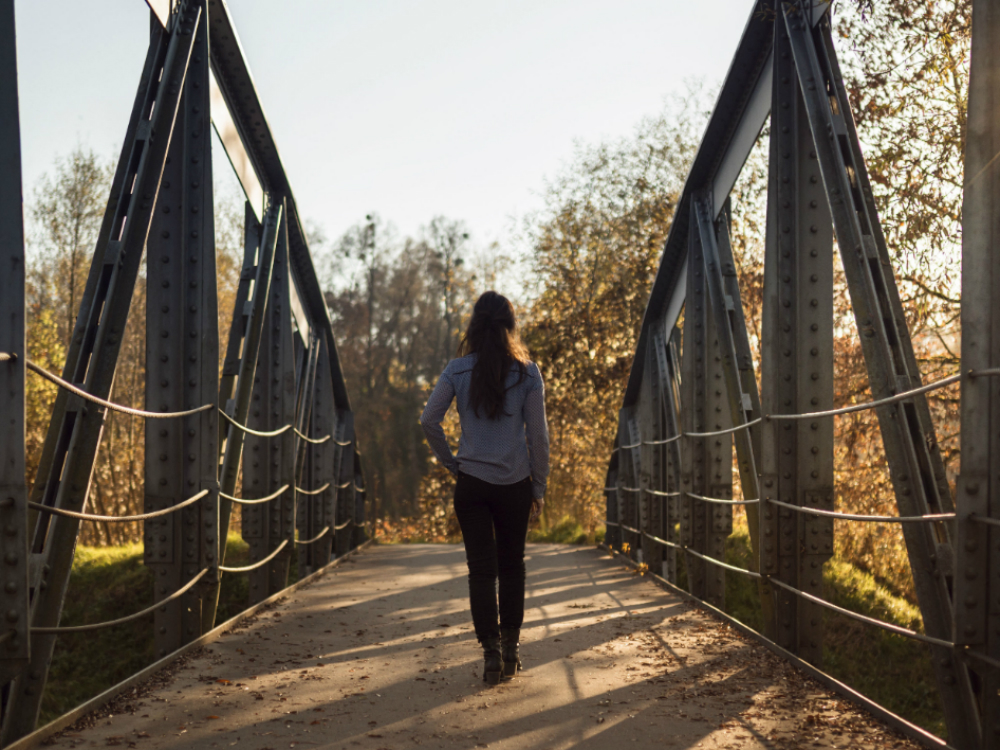Sexual harassment can impact your mental health in this dangerous way
This is terrifying

This is terrifying
From the editors of Hello Giggles Words by Karen Fratti
Sexual harassment isn’t just about the one time someone says or does something inappropriate without your consent. In fact, a new study found that sexual harassment can seriously impact your mental health in a dangerous way long after it happens, which is just one reason that companies and institutions should have better policies in place to not just report harassment but also care for the victim afterwards.
These revelations come from a study that was published last September in the BMC Public Health Journal by researchers from the National Research Centre for the Working Environment, Denmark. After interviewing almost 8,000 employees from just over 1,000 organisations, researchers found that employees who experience sexual harassment at work — from a supervisor, peer, or subordinate — are likely to develop severe depression symptoms.
Those who experienced sexual harassment by clients or customers also experience depressive symptoms, which is something researchers ignored in the past. Depression symptoms aren’t just dangerous because, well, it’s depression and could lead to self harm, suicide, or substance abuse problems, but also because you fall behind at work. That might sounds trivial in terms of all the other effects of depression, but it’s a real problem.
According to RAINN, 30 to 50 percent of rape victims experience PTSD. They’re 13 times more likely to have an alcohol problem and 26 times more likely to have a drug problem. The study about depression focused solely on victims of sexual harassment, not assault or rape, but it shows that an act of aggression from someone at work doesn’t have to be violent to have lasting effects on a person.
Sexual harassment holds victims hostage in so may ways.
Marie Claire Newsletter
Celebrity news, beauty, fashion advice, and fascinating features, delivered straight to your inbox!
Dr. Ida Elisabeth Huitfeldt Madsen, the lead author of the study, said in a press release, ‘We were surprised to see the differences between the effects of harassment by clients or customers compared to harassment by other employees. This is not something that has been shown before.’ In addition to that, it means that ignoring harassment or victim blaming just isn’t an option (not like it should have ever been to begin with, but here we are).
Madsen continued: ‘Our findings suggest that sexual harassment from clients or customers has adverse consequences and should not be normalised or ignored. In this study we found that sexual harassment from clients or customers, which is more prevalent than harassment from other employees, is associated with an increased level of depressive symptoms. This is important as some workplaces, for example in person-related work like care work or social work, may have an attitude that dealing with sexual harassment by clients or customers is “part of the job.”’
But that’s exactly what happens, especially given the sexual harassment and assault allegations against Hollywood producer Harvey Weinstein or Leon Wieseltier, the publisher of the New Republic, who was also accused of sexually harassing female employees in the office over the course of decades. Both of these men, like most other sexual harassers in the workplace, cultivated such an extreme sexist culture in their respective workplaces that it was just assumed that you would be sexually harassed or assaulted if left in the same room with them.
Noreen Malone, a former editor at the New Republic and current editor for New York, said on the Slate Double X Gabfest podcast earlier this month that Wieseltier seemed to be sexually harassing women ‘for [the other men’s] benefit’ in the office. He did so as if there was something inherently powerful or ‘cool’ about abusing women and creating a predatory environment. This refusal to believe victims and normalise sexual harassment likely adds to a victim’s isolation afterwards.
As Lupita Nyong’o wrote in her op-ed about Harvey Weinstein, 'I did not know that things could change. I did not know that anybody wanted things to change. I also did not know that there was a world in which anybody would care about my experience with him.'
According to Amy Blackstone, a sociologist at the University of Maine who researches sexual harassment, this cycle of victim blaming is the most detrimental to a victim’s heath. She told LiveScience last year, “For some people, that self-doubt turned into self-blame and victims can feel responsible for what happened. Such self-blame may have a negative effect on mental health, including promoting feelings of depression.”
Dr. Colleen Cullen, a licensed clinical psychologist, told NBC that victims of sexual harassment not only experience depressive symptoms, but also anxiety and PTSD in some cases. She said: 'An experience [with sexual harassment] can either trigger symptoms of depression and anxiety that are new to the person; or it can exacerbate a previous condition that may have been controlled or resolved. Patients may also see a worsening of symptoms. Some research has found that sexual harassment early in one’s career in particular can [cause] long-term depressive symptoms.'
If it can affect victims early on in their career, then the sexualisation of young girls and street harassment might also affect young women, who are already three times more likely to suffer from depression than boys during teenage years.
What’s most scary is that those symptoms might never go away, which means you’re dealing with the effects of mental health — not to mention the often prohibitive costs of managing depression with a professional — in the longterm.
'For many people, these symptoms dissipate over time through social support and coping strategies, and many people totally recover and move on; others will be so distressed that it really interferes with their work and life. It takes a certain number of symptoms to diagnose, but that’s when it can become PTSD,' Dr. Helen Wilson, a licensed clinical psychologist with expertise on the effects of trauma, told NBC News.
Shutting down sexual harassment and rape culture doesn’t just mean putting an end to sexism and creating a positive work environment for women. This is also a health care issue that ends up costing us all.
The leading destination for fashion, beauty, shopping and finger-on-the-pulse views on the latest issues. Marie Claire's travel content helps you delight in discovering new destinations around the globe, offering a unique – and sometimes unchartered – travel experience. From new hotel openings to the destinations tipped to take over our travel calendars, this iconic name has it covered.


